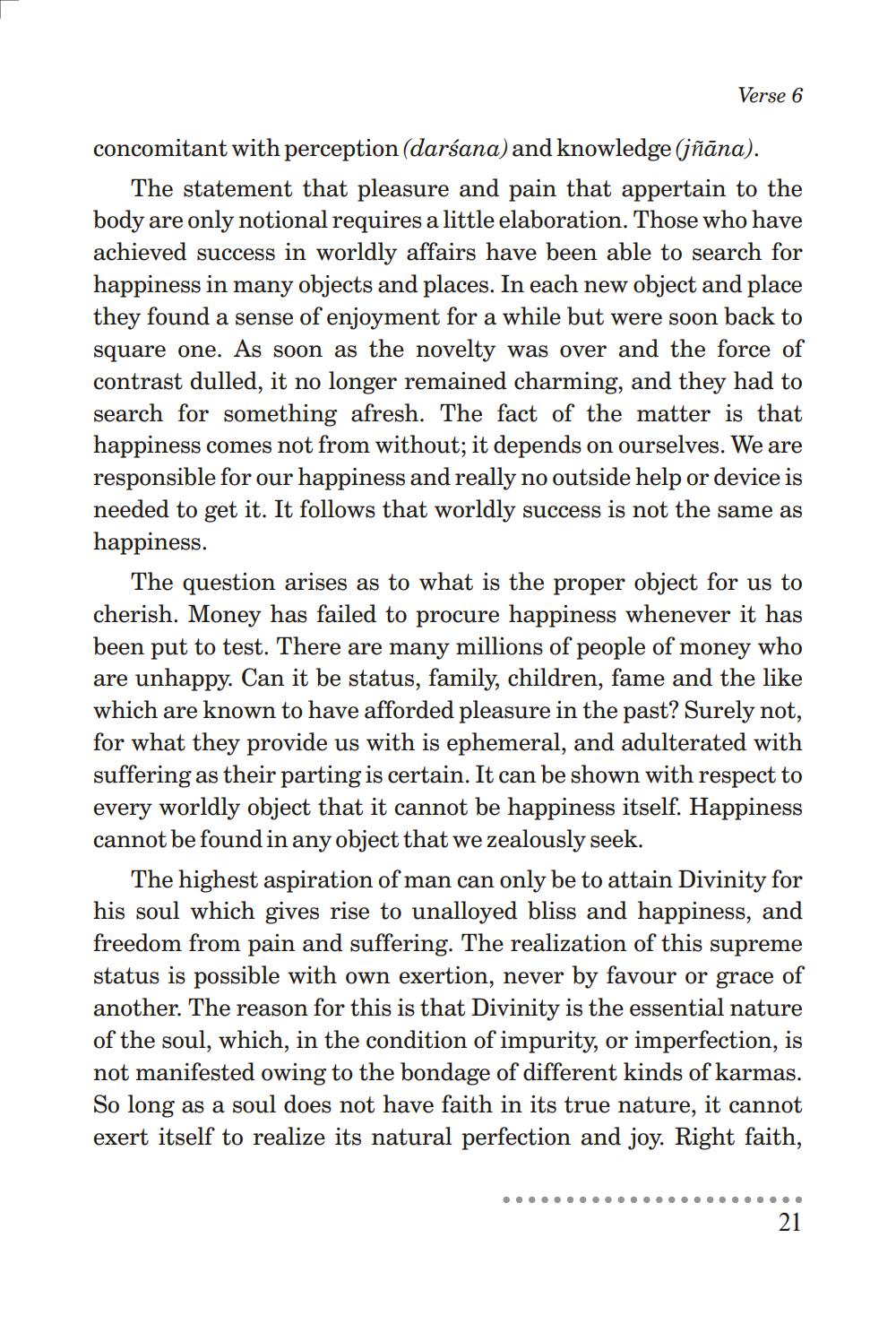________________
Verse 6
concomitant with perception (darśana) and knowledge (jñāna).
The statement that pleasure and pain that appertain to the body are only notional requires a little elaboration. Those who have achieved success in worldly affairs have been able to search for happiness in many objects and places. In each new object and place they found a sense of enjoyment for a while but were soon back to square one. As soon as the novelty was over and the force of contrast dulled, it no longer remained charming, and they had to search for something afresh. The fact of the matter is that happiness comes not from without; it depends on ourselves. We are responsible for our happiness and really no outside help or device is needed to get it. It follows that worldly success is not the same as happiness.
The question arises as to what is the proper object for us to cherish. Money has failed to procure happiness whenever it has been put to test. There are many millions of people of money who are unhappy. Can it be status, family, children, fame and the like which are known to have afforded pleasure in the past? Surely not, for what they provide us with is ephemeral, and adulterated with suffering as their parting is certain. It can be shown with respect to every worldly object that it cannot be happiness itself. Happiness cannot be found in any object that we zealously seek.
The highest aspiration of man can only be to attain Divinity for his soul which gives rise to unalloyed bliss and happiness, and freedom from pain and suffering. The realization of this supreme status is possible with own exertion, never by favour or grace of another. The reason for this is that Divinity is the essential nature of the soul, which, in the condition of impurity, or imperfection, is not manifested owing to the bondage of different kinds of karmas. So long as a soul does not have faith in its true nature, it cannot exert itself to realize its natural perfection and joy. Right faith,
21




